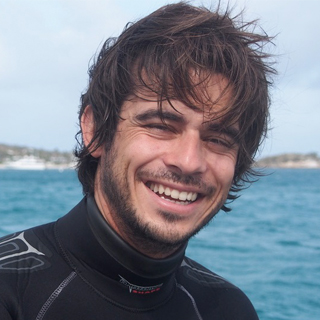My research aims at understanding the state shift transitions in benthic marine systems to multiple physical and biological stressors. Particularly I am very interested in transitions of vegetated ecosystems and especially in the collapse of macroalgal forests to bare, unproductive rock areas (barrens). I mix natural surveying with manipulative experiments (field and laboratory) and mathematical modelling to conceptualise collapses in marine ecosystems, identify tipping-points and quantify resilience. I am also very passionate by the consequences of marine collapses to the ecosystem goods and services and their link to socio-ecological shifts so I try to provide with complementary approaches for appropriate management of marine benthic systems. More and more every day, my research is linked to the effects of global change (including climate change but not only) and how the expected shifts in the physical conditions of the environment may erode or build up the resilience of habitat engineers to propose conservation priorities and prevent the collapse of ecosystems that in fact contribute to buffer its effects.
Jordi Boada Garcia
Ramon y Cajal researcher

Department
Research group
Contact
Email
jordi.boada@udg.edu
Publication profiles
NºORCID:
https://orcid.org/0000-0002-3815-625X
Jordi Boada Garcia
Ramon y Cajal researcher
PROJECTS
The research is closely linked to the effects of global change and how it can erode the resilience of habitat engineers such as macroalgae. It seeks to propose conservation priorities and contribute to preventing and avoiding the collapse of marine ecosystems.
The project, with an explicitly interdisciplinary vocation, seeks, first of all, to document the role of storms as agents of change for Mediterranean coastal vegetation, both emerged and submerged (underwater meadows, marsh vegetation and dunes).
Blue Forests, such as macroalgal forests, seagrass meadows, salt marshes and mangroves, are vegetated coastal habitats that cover enormous areas around the world, providing various types of ecosystem services.
The effective assembly and integration of socio-ecological systems around marine forest habitats will allow the identification of optimal balance scenarios between the long-term conservation of coastal benthic ecosystems and the viability of small-scale fisheries for both sea urchins and of their predatory fish.


